Install the app
Install this application on your home screen for quick and easy access when you’re on the go.
Just tap then “Add to Home Screen”
Install this application on your home screen for quick and easy access when you’re on the go.
Just tap then “Add to Home Screen”
Install this application on your home screen for quick and easy access when you’re on the go.
Just tap then “Add to Home Screen”

The local hosts from CEU Budapest work alongside the ECPR Events Team with the organisation of the Virtual Methods School.
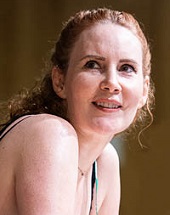
Erin Jenne, Professor, Department of International Relations
Erin K. Jenne is a professor at CEU's Department of International Relations, where she teaches MA and PhD courses on qualitative and quantitative methods, nationalism and civil war, foreign policy analysis, international relations theory, ethnic conflict management, and international security.
Erin received her PhD in political science from Stanford University with concentrations in comparative politics, international relations and organisational theory. She has received numerous grants and fellowships, including a MacArthur fellowship at Stanford University, a Center for Science and International Affairs (BCSIA) fellowship at Harvard University, a Carnegie Corporation scholarship, and a Fernand Braudel fellowship at European University Institute (EUI) in Florence, and a MINERVA Initiative grant on Chinese soft power from the US Department of Defense.
Erin recently published her second book, Nested Security: Lessons in Conflict Management from the League of Nations and the European Union (Cornell University Press, 2015). Her first book, Ethnic Bargaining: The Paradox of Minority Empowerment (Cornell University Press, 2007) won the Mershon Center’s Edgar S. Furniss Book Award in 2007 and was named a Choice Outstanding Academic Title by Choice magazine. Ethnic Bargaining is based on her dissertation, which won the 2001 Seymour Martin Lipset Award for Best Comparativist Dissertation.
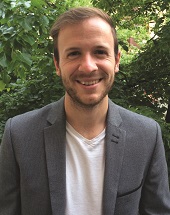
Michael Zeller, Doctoral Candidate, Department of Political Science
Michael's dissertation research concerns the demobilisation of far-right demonstration campaigns, and particularly how counter-mobilisation against far-right movements affects this process. Michael is also an Associate Researcher at CEU’s Center for Policy Studies, working on the ‘Building Resilience against Violent Extremism and Polarisation’ (BRaVE) project. Michael earned master’s degrees in political science and in Russian, Central and Eastern European Studies, from Corvinus University of Budapest and the University of Glasgow, respectively.
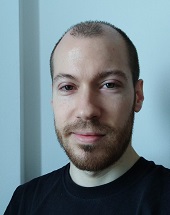
Pedro Martin, Student Assistant
Pedro Martín is a PhD candidate at the European University Institute and a former graduate student of Political Science at the Central European University. He is interested in inequality from a comparative perspective. His research focuses on how public opinion is shaped in different institutional and broader contexts.
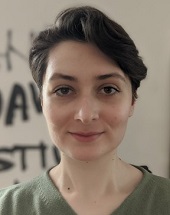
Henri Pozsar, Student Assistant
Henri Pozsar is a second year Master's student in Political Science at Central European University. She is preparing a thesis on the use and methodology of computer simulations in Political Science.
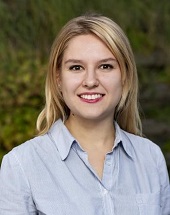
Polina Vershinina, Student Assistant
Polina Vershinina is a graduate of the Central European University master’s programme in Political Science, specialising in political economy and state-business relations.

Burcu Kisac, Student Assistant
Burcu Kisac is a master student in the 2-year Master Program in Political Science at Central European University and earned a 5-year bachelor’s degree in Radio, Television and Cinema at the Faculty of Communication in Marmara University, in Istanbul, Turkey. She is interested in comparative political studies regarding demographic and social-economic backgrounds of modern states.
The Virtual Methods School programme has been development by our Academic Convenors, Benoit Rihoux, Derek Beach and Levi Littvay in conjunction with the ECPR's Training Subcommittee.
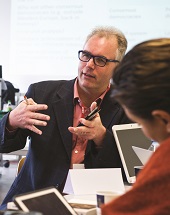
Benoît Rihoux, Academic Convenor
Benoît is Full Professor of Political Science at the Centre de Science Politique et de Politique Comparée (CESPOL) of the Université Catholique de Louvain, Belgium.
His substantive research interests include political parties, new social movements, organisational studies, political change, and policy processes.
He is manager of the COMPASS international research group on systematic comparative methods and plays a leading role in the development and refinement of these methods, bringing together scholars from Europe, North America and Japan in particular.
He recently published Innovative Comparative Methods for Policy Analysis: Beyond the Quantitative–Qualitative Divide (Springer/Kluwer, ed., with Heike Grimm, 2006) and Configurational Comparative Methods: Qualitative Comparative Analysis (QCA) and Related Techniques (Sage, ed., with Charles Ragin, 2009), and has published extensively on systematic comparative methods (QCA in particular) and their applications in diverse fields – especially policy- and management-related – with interdisciplinary teams.
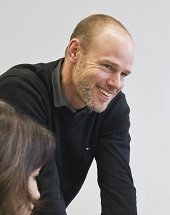
Derek Beach, Academic Convenor
Derek Beach is a Professor of Political Science at the University of Aarhus, Denmark, where he teaches international relations, EU integration and research methodology.
He has authored numerous articles, chapters, and books on case study methods, including co-authoring Process-tracing Methods: Foundations and Guidelines (2013, University of Michigan Press), and Causal Case Study Methods (2016, University of Michigan Press).
Derek has taught PhD courses in case study methods at ECPR and IPSA summer and winter schools, the ICPSR (Michigan) summer school, and held numerous workshops and seminars on case study methods throughout the world.
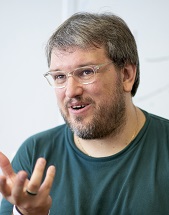
Levente (Levi) Littvay, Academic Convenor
Levi Littvay is Associate Professor of Political Science at Central European University, Budapest, where he predominantly teaches MA and PhD courses on applied statistics with occasional topical classes such as elections, voting behaviour, experimental political science, political psychology and American politics.
He received his MA and PhD in Political Science and an MS in Survey Research and Methodology from the University of Nebraska-Lincoln, and was invited to teach numerous research methods workshops and is the inaugural recipient of his home institution's Distinguished Teaching Award.
To date, Levi has secured over €500,000 in research funds with which he conducts research on survey and quantitative methodology, twin and family studies, and, most recently, the psychology of populist attitudes.
He is Associate editor of Twin Research and Human Genetics and has published in journals such as The Journal of Politics, Political Psychology and BMC: Medical Research Methodology.